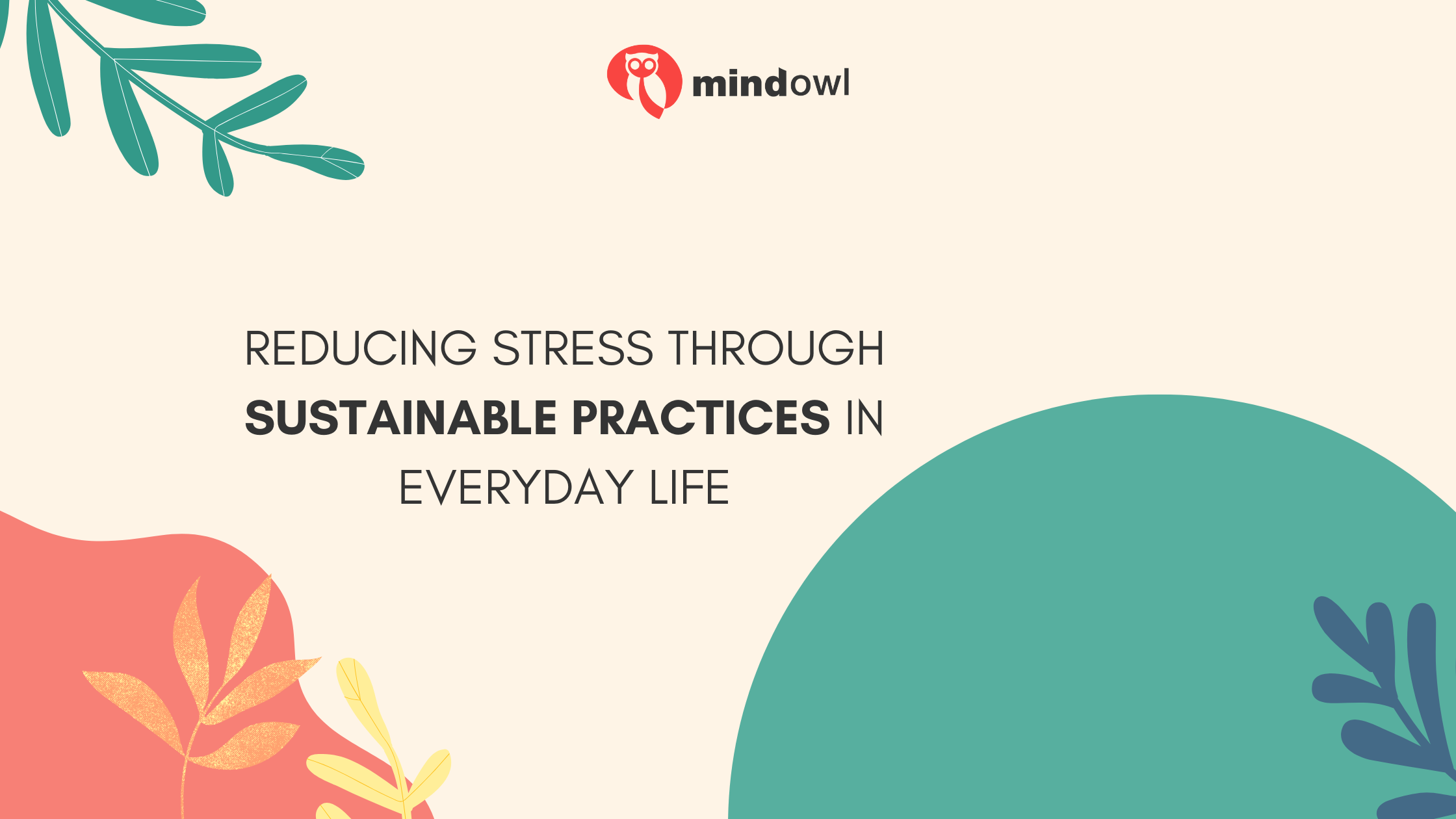In today’s fast-paced world, many individuals are seeking ways to reduce stress while maintaining a focus on sustainability. Integrating eco-friendly practices into daily routines not only benefits the environment but also fosters a sense of calm and balance. Implementing simple, sustainable habits can significantly lower stress levels and improve overall well-being.
Small changes, such as using reusable products or choosing local, organic foods, can create a more mindful lifestyle. These practices encourage individuals to connect with their surroundings and develop a deeper appreciation for nature. By making conscious choices, one can transform stressful routines into opportunities for relaxation and reflection.
Exploring sustainable practices can lead to valuable insights into personal wellness. As individuals prioritize eco-friendly habits, they often discover a renewed sense of purpose and a healthier mindset. This journey toward sustainability not only protects the planet but also serves as a powerful tool for reducing everyday stress.
Understanding Stress and Sustainability in Life
Stress often emerges from life’s demands and can significantly affect mental and physical health. Sustainable practices can help mitigate these stressors while promoting a more balanced lifestyle.
The Psychology of Stress
Stress is a response to perceived threats, causing emotional and physiological changes. In modern life, individuals face numerous stress triggers, including work pressure, financial concerns, and interpersonal conflicts. These stressors can lead to anxiety, depression, and various health issues.
Common stress symptoms:
- Irritability
- Fatigue
- Difficulty concentrating
Recognizing stress sources is crucial for effective management. Techniques such as mindfulness and deep breathing can aid in reducing immediate stress levels. Additionally, understanding the psychological roots of stress allows individuals to develop resilience and better coping strategies.
Principles of Sustainable Living
Sustainable living emphasizes reducing one’s environmental impact while enhancing well-being. This approach often involves mindful consumption, waste reduction, and energy conservation. By creating a healthy environment, individuals can mitigate stress and foster a sense of accomplishment.
Key principles include:
- Minimalism: Reducing clutter can lead to decreased anxiety.
- Local sourcing: Supporting local economies builds community and reduces stress related to global supply chains.
- Nature connection: Spending time outdoors lowers stress and improves mood.
Implementing sustainable practices not only benefits the environment but also promotes personal well-being. Engaging in these principles can help create a more fulfilling and less stressful life.
Embracing eco-friendly practices isn’t just good for the planet—it’s great for your mental health too. Studies show that actively participating in sustainable routines, such as recycling and reducing waste, can lead to a more mindful lifestyle. Our recent article on steps to reduce environmental impact offers a practical approach to making small yet impactful changes in your daily life, fostering both mental clarity and a greener future.

Daily Habits for Stress Reduction
Incorporating sustainable practices into daily routines can significantly alleviate stress. Mindfulness, eco-friendly routines, and conscious food choices contribute to a balanced lifestyle, enhancing mental well-being.
Mindfulness and Reflection
Mindfulness involves being fully present in the moment. This practice can include techniques such as meditation, deep breathing, or journaling.
- Meditation: Setting aside a few minutes each day for meditation helps clarify thoughts and reduces anxiety. Apps or guided sessions can provide structure for beginners.
- Deep Breathing: Simple breathing exercises can ground individuals when feeling overwhelmed. Inhale deeply through the nose and exhale through the mouth, repeating for five minutes.
- Journaling: Writing down thoughts can offer clarity and release tension. Keeping a gratitude journal can shift focus toward positive experiences.
Eco-Friendly Routines
Creating eco-friendly habits promotes a sense of responsibility towards the environment while also enhancing personal well-being.
- Minimalism: Reducing clutter in one’s living space can lower stress levels. A clean, organized environment helps maintain mental clarity.
- Nature Walks: Spending time outdoors contributes to relaxation. Regular walks in green spaces familiarize individuals with nature’s calming effects and improve mood.
- Eco-Friendly Practices: Implementing actions like recycling and using sustainable products can foster a sense of achievement and purpose, further reducing stress.
Nutrition and Sustainable Food Choices
What individuals consume directly influences their mental state. Sustainable food choices can promote both health and environmental consciousness.
- Plant-Based Diets: Incorporating more fruits and vegetables can enhance mood and energy levels. Local, seasonal produce is often fresher and more sustainable.
- Mindful Eating: Focusing on meals without distractions helps individuals appreciate their food, promoting satisfaction and reducing overeating.
- Hydration: Drinking enough water is essential for cognitive function. Herbal teas can also be a calming alternative, offering both hydration and stress reduction.
Adopting these daily habits fosters a healthier lifestyle and can significantly reduce stress over time.
Long-Term Strategies for a Sustainable Lifestyle
Adopting sustainable practices can lead to a healthier and less stressful lifestyle. Key areas for long-term strategies include creating a green living environment, investing in sustainable technologies, and fostering community involvement.
Creating a Green Living Environment
Designing a home that supports sustainability contributes significantly to daily stress reduction. Incorporating plants not only enhances air quality but also fosters a calming atmosphere.
Utilizing natural materials in home decor can help reduce toxins. Additionally, using energy-efficient appliances lowers both utility bills and the carbon footprint.
Implementing recycling systems and composting reduces waste. Furthermore, choosing eco-friendly cleaning products contributes to healthier indoor air quality. The collective impact of these small changes can create a more serene living space.
Investing in Sustainable Technologies
Investing in sustainable technologies can streamline daily life while promoting environmental responsibility. Solar panels provide renewable energy, cutting down on energy costs and reliance on fossil fuels.
Smart home technology allows for efficient resource management. Programmable thermostats and smart lighting systems enhance convenience and minimize energy waste.
Electric vehicles offer an alternative to traditional gas cars. They typically have lower maintenance costs and reduce greenhouse gas emissions. Individuals can evaluate the long-term savings and benefits associated with these technologies.
Community Involvement and Support
Engaging with the community amplifies the impact of sustainable practices. Joining local environmental groups fosters collaboration on sustainability projects.
Participating in community gardens not only promotes local food production but also encourages social interactions. This helps build support networks that further sustainable initiatives.
Volunteering for clean-up drives contributes to a cleaner local environment, enhancing both personal well-being and community health.
Overall, active involvement nurtures a sense of belonging and shared purpose in sustainability efforts. Making collective strides enhances individual stress reduction while promoting a sustainable future.
MindOwl Founder – My own struggles in life have led me to this path of understanding the human condition. I graduated with a bachelor’s degree in philosophy before completing a master’s degree in psychology at Regent’s University London. I then completed a postgraduate diploma in philosophical counselling before being trained in ACT (Acceptance and commitment therapy).
I’ve spent the last eight years studying the encounter of meditative practices with modern psychology.

